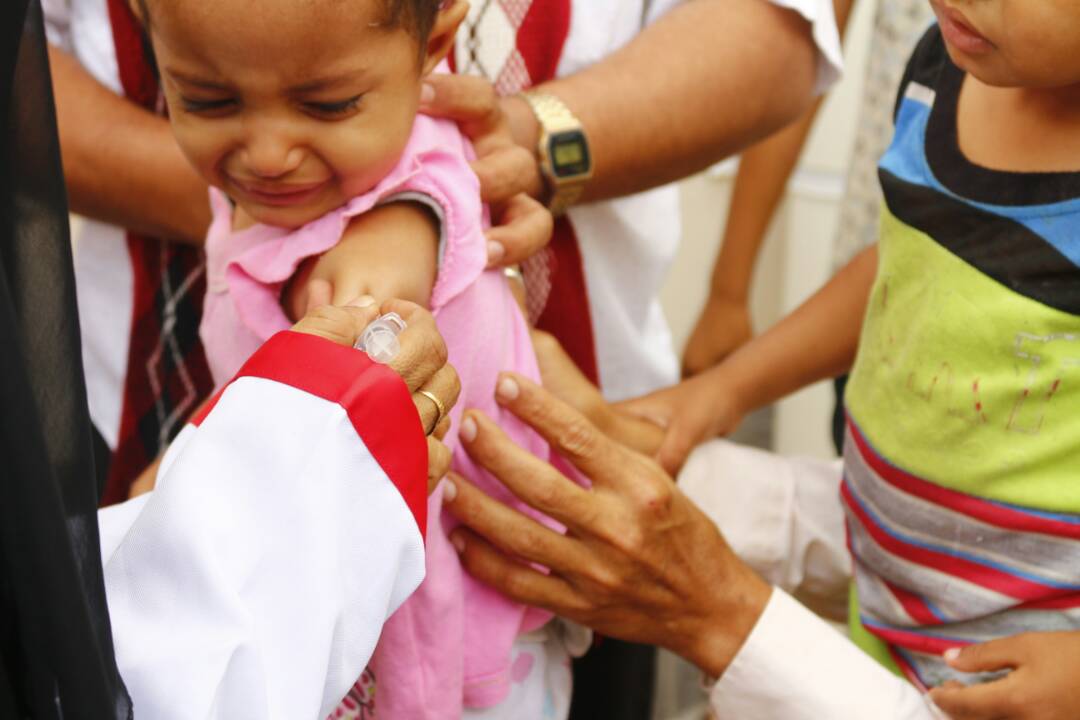The Start Fund’s value lies in its use as a tool by and for its members, and with member agency representatives having the ability to define and adjust the Start Fund remit to the realistic needs and flexibilities of humanitarian crises. The Start Fund is not only a funding mechanism with a very wide scope but also one that encourages rapidly changing situations to be addressed effectively.
The possibilities of the Start Fund’s use have been thoroughly evidenced through its 270+ activations in some of the most high-profile humanitarian contexts, as well as in some that are barely reported in the local press. This flexibility has been further demonstrated through the expansion of the Start Fund to include anticipatory projects – meaning that while item distributions, cash programming, and protection activities are all viable uses for the Start Fund, so too are training sessions, awareness-raising campaigns, and data-collection to mitigate disasters.
Flexibility of niche
The context in which Start Funding can be allocated varies greatly – including within well-known humanitarian situations that receive consistent media coverage. This is the case with the Start Fund’s responses to instances of rapid displacement in Syria (Alerts 391, 246, and 204) as well as alerts in Yemen. Due to the conflict and food insecurity that occupies most of the media coverage on the humanitarian crisis in Yemen, limited resources remain to manage situations that are happening simultaneously – such as the floods that the Start Fund supported for its 350th alert, but also cholera and diphtheria outbreaks that affected parts of the country (alerts 200 and 162). The ability to tailor Start Fund alerts to meet additional needs in well-known humanitarian contexts where existing funding may not be as flexible, and to do so quickly, enables Start Network members to best address the needs of a vulnerable population.
Flexible proposals
Humanitarian contexts can often change very quickly. For this reason, Start Fund proposals – while composed generally within 24 hours – are adaptable and open to changes, if the rationale behind them is evidenced and supported.
Main reasons for allowing these changes include:
• unplanned and sudden intervention of other response actors,
• displaced populations either returning home or managing displacement in an unexpected way,
• direct discourse with the targeted population resulting in a strong understanding of the community’s priorities and needs – leading to activities being adjusted to best meet them.
This ability to alter and change activities allows for alerts to be raised promptly after crises begin in the knowledge that there is a ‘fail-safe’ option to adjust as the situation develops. It also allows extra time to reach communities in remote or inaccessible locations before activities begin. There are many examples of this in practice – in the ActionAid response to flooding in Northern Ghana in autumn 2019, for example, the alert was already delayed in being raised due to the remote location of the affected population. ActionAid was able to complete the alerting process before completely finalising the implementation method planning. This, in turn, resulted in the best possible solution for the flood-affected area: a mixture of in-kind and cash programming which created a context-specific and holistic response.
Flexible implementation
A key feature of the Start Fund’s flexibility lies in the activity choice. This can depend upon what contextual factors might be in place as well as whether the crisis is small or medium-scale, whether it is anticipatory, rapid, or slow-onset, and whether the Start Alert stands on its own or fills a niche in an ongoing response. This flexibility is especially evident in short-term rapid-onset crises, such as the mass migration in June 2019 that followed the Peruvian government announcing migration controls for people from Venezuela. This announcement prompted 34,000 people to cross the border into Peru ahead of the controls coming into effect. Many people who were crossing the border had low levels of physical and financial resilience – in addition to the hyperinflation, recession impact, and lack of resources that many Venezuelans faced. Needs were, therefore, wide – but as the border of Peru was a temporary transit site, agencies were able to provide multiple types of programming simultaneously and on a short-term basis. This extended from shelter, WASH, and protection to maternal health and support units, as well as psycho-social support, asylum or migration advice, and clothing distributions.
This flexibility is also evident in other displacement contexts, such as in the dismantling of camps in Beka’a Lebanon in June 2019. While providing shelter needs was the foremost activity for all involved agencies, other activities ran alongside this: WASH rehabilitation, Child Protection and psycho-social support, and protection activities for people with disabilities. The Start Fund’s confidence in its members to select the best use of funds permits agencies to expand and adapt their activities, responding to humanitarian crises holistically instead of in just one sector.
When a rapid response mechanism is in place, as much flexibility as possible must be encouraged, not only in terms of programme changes, but also the scope of possible activities and programming. This allows agencies to make the best programming choices. The Start Fund encourages this as much as possible with due diligence measures to facilitate agencies’ programming while still working within the niche of the Start Fund criteria, as well as through limiting and simplifying award administration and paperwork. The Start Fund has responded to more than 27 types of crises in 67 countries using this approach and is consistently encouraging members to develop and test innovative and positive approaches to produce the best possible results for the affected communities.
Learn more about the Start Fund.
The Start Fund is collectively owned and managed by Start Network’s members, and supported by the governments of the United Kingdom, Ireland, the Netherlands, Germany, Jersey and the IKEA Foundation.

